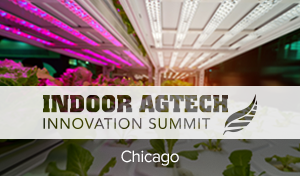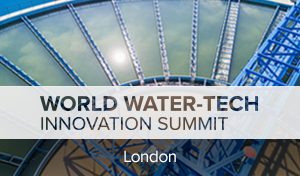Creating climate-smart solutions is of the utmost importance in the drive to salvage planetary health and prevent a global food crisis. At Future Food-Tech London on September 28-29, food-tech pioneers and investors will discuss approaches to tackling Scope 3, reducing carbon footprint, land and water usage across the food system, and how progress can best be communicated to consumers through carbon-labelling.
Ahead of the summit, two industry trailblazers, Richard Zaltzman, Chief Impact Officer, EIT FOOD and Didier Toubia, Co-Founder & CEO, ALEPH FARMS share their thoughts.
What strategies are you seeing being implemented across the food chain to reduce environmental impact?
 Richard Zaltzman, Chief Impact Officer, EIT FOOD: “There is a huge amount of focus on scope 3 emissions across the food chain, with organisations realising that the biggest changes will come when the whole value chain aligns to collectively reduce their environmental impact. Collaboration is critical, and we are seeing organisations actively seeking pre-competitive spaces to explore how they can work together to address common issues. This is resulting in shared programmes in areas from regenerative agriculture to packaging, as organisations focus on the mutual rather than competitive advantage of changing how they work.
Richard Zaltzman, Chief Impact Officer, EIT FOOD: “There is a huge amount of focus on scope 3 emissions across the food chain, with organisations realising that the biggest changes will come when the whole value chain aligns to collectively reduce their environmental impact. Collaboration is critical, and we are seeing organisations actively seeking pre-competitive spaces to explore how they can work together to address common issues. This is resulting in shared programmes in areas from regenerative agriculture to packaging, as organisations focus on the mutual rather than competitive advantage of changing how they work.
Eco-scoring and labelling is one example of cross-food chain effort. Schemes such as Foundation Earth and Planet-Score are working towards a deep understanding of the environmental impact of specific foods, to enable food companies to make targeted changes in their processes which can have dramatic effects on food impact, as well as giving consumers the insights they need to make environmentally driven choices.
The utilisation of data to enable decision-making by food system actors is helping us to analyse and optimise value chains. Importantly, this is not just for carbon, but also for water usage, biodiversity, soil health and many other dimensions.”
 Didier Toubia, Co-Founder & CEO, ALEPH FARMS adds that he sees “three main areas of policy action:
Didier Toubia, Co-Founder & CEO, ALEPH FARMS adds that he sees “three main areas of policy action:
1. Enforce regulatory actions for meeting reduction targets of greenhouse gas emissions set by the strongest countries in the world, for example the Methane Pledge that was announced in COP27.
2. Foster regulatory frameworks for integrating complementary production methods for animal products and novel foods.
3. Promote policy designed to account for the true cost of food, highlighting externalities associated with food production and consumption and redirecting subsidies to climate-friendly incentives and practices.”
In what ways can players work together to reach common goals, to accelerate innovation and meet sustainability targets?
Richard Zaltzman, Chief Impact Officer, EIT FOOD is a big believer in collaboration: “By working together on the foundational, fundamental challenges our food system is facing, organisations can address the areas which are holding us all back, and collectively raise the tide. Identifying the areas which when solved will provide a shared uplift rather than competitive advantage is a great place to start. This requires us to develop precompetitive spaces to innovate within and collectively drive systems change. The great thing about this, is not just the systems change we achieve if this works, but it also reduces and shares risk for those involved.
There are many areas of mutual benefit when we look at the food system. For instance, if only one drinks bottle for one product in made of recyclable packaging, then you are unlikely to have the infrastructure and volume to recycle drinks bottles in the value chain. But if everyone sells their drinks products in recyclable bottles, this improves the supply of recycled materials, provides the demand for changes in recycling infrastructure and enables a transition in the value chain that any one player would struggle to achieve on their own.
As part of this we also need to develop new business models to support new ways of doing things, which we need to develop by working together. For example, when we consider regenerative agriculture, a farmer will not just be producing one crop year after year. They will produce a “regenerative crop” in one season for one buyer, then will producing a different regenerative crop in the next crop rotation. They might produce potatoes (for example) every 5 years. This therefore requires different types of contracts between farmers and offtakers.
No single organisation will achieve systems change by working by themselves. We need to work together to accelerate innovation and to meet our sustainability targets.”
Didier Toubia, Co-Founder & CEO, ALEPH FARMS seconds this, sharing: “We need to break our silos, work together as an ecosystem, and create partnerships that are mutually beneficial from financial, environmental, and social perspectives. By forming coalitions, defining joint policies, and setting measurable goals for our impact, we can optimise our food systems as a whole and get humanity living within our planetary boundaries.”
What exciting innovations are emerging to create climate-smart foods?
Richard Zaltzman, Chief Impact Officer, EIT FOOD: “I am really excited about the innovations we are currently seeing in the food system. Whilst the “deep tech” innovations such as cultivated meat attract a lot of attention, innovation at the farm level is moving at an incredible pace. The availability of satellite data is a complete game changer, coupled with drone and robot technology. We are seeing radical new analyses of farms as carbon stocks for example, enabling farmers to make informed decisions around managing the carbon stock of their land which would simply not have been possible without the innovations we have had on remote sensing and data. The application of data is driving change right across the farm, for instance from the analysis of livestock grazing patterns, to methane emissions, and from data about water usage from an individual plant, to precision nutrient application. We are only just starting to see the potential that this could bring, and the increasing interest of tech companies in agriculture and food production highlights this as a clear area for growth.
Side stream valorisation is another area of real innovation as the need to increase profit margins and the popularity of circular food systems gains traction. Food production has taken place in a very linear model for a long time, but there is a wave of innovation which creating enormous value from coffee pulp to spent grains, and straw to grape seeds. And we are seeing multiple applications – new proteins, ingredients, processes, all of which create new markets and are making significant inroads into decreasing the climate impact of food, by reducing waste and improving the value and use of crops.”
Didier Toubia, Co-Founder & CEO, ALEPH FARMS: “Achieving a just transition in animal agriculture means promoting innovations that can improve the efficiency of conventional production methods (like regenerative agriculture), while also promote new complementary production methods (like cellular agriculture, cultivated meat, insect-based and algae-based solutions) that help diversify the supply and decentralise the production of food, contributing to both the mitigation of and adaptation to climate change.”
What challenges are there to overcome in order to actively measure environmental impact and should there be a standardised framework to measure this?
Richard Zaltzman, Chief Impact Officer, EIT FOOD depicts the sentiment that climate impact measurement is incredibly complex, “as different environmental factors have such different parameters to both measure and analyse. Carbon is relatively straightforward in the energy sector, but less so in agriculture with the relationship between stocks and flows going both ways in a field. Biodiversity, water, soil health, air quality – these are all dimensions of environmental impact that the food sector can affect, but there is no singular way of measuring impact.
There absolutely needs to be a set of frameworks and standards to measure environmental impact so that organisations and individuals at all levels, from farmer to consumer, understand the impacts of food. However those frameworks need to find the right balance of scalability, applicability and accuracy. For example, if we have a framework which gives us the most accurate picture possible of soil health, but which is too difficult or expensive for many farmers to use, we will see very little change in behaviour.
Approaching a complex challenge like this is one of building momentum, and we have seen how this works well (or not so well) in the carbon markets. We need to create credible frameworks which engage enough of the right organisations to build momentum, that can be trusted to point in the right direction, and then we work on driving scale adoption and improving accuracy. If we get the balance right, then we can trigger significant behavioural change, which leads in the right direction at scale.”
Didier Toubia, Co-Founder & CEO, ALEPH FARMS looks inwardly, telling that Aleph Farms’ “environmental impacts are multidimensional, and they include aspects which don’t have a common measuring criteria like biodiversity loss, land erosion, water use and even our public health. Some impacts are aggerated without criteria in place.”
With increased interest in climate-tech, how can the food-tech sector ensure that it is positioned to attract capital from this growing group of investors?
Richard Zaltzman, Chief Impact Officer, EIT FOOD shares that “the food sector has so many potential interventions, opening up a huge world of possibilities for investors, and critically has two benefits which others sectors may not. Firstly, it is very diverse, creating true portfolio opportunities which mitigate risk for investors and which enable investors to look at systems change portfolios rather than single point innovations. Secondly, there are multiple impact dimensions across the food sector; it is one of the few sectors which can deliver high scale carbon removals, it has multiple impact benefits across water use, air quality, landscape risk reduction, biodiversity etc, which other sectors cannot match. Food-tech is therefore one of the most diverse and impactful sectors for investors and we only see this growing. By positioning the food system as a natural sector for investors to develop diverse portfolios, with balanced risk and multiple impact returns, we should be able to open the door to the investors who will be the financial engine of change.”
Didier Toubia, Co-Founder & CEO, ALEPH FARMS: “Food technology companies need to prioritise building social, environmental, economic, and nutritional sustainability into their product strategy, business model, partnerships, and operations. Sustainability is a continuous journey, one that involves constant monitoring of and vigilance towards impact as companies grow and scale their footprint.”
Aleph Farms’ Didier Toubia joins the panel ‘Climate-Smart Food: Solutions to Reduce & Measure Environmental Impact‘ with industry leaders Sodexo and Carbon Cloud to discuss innovative ways companies are working to reduce their carbon footprints, standardised framework and measurement technologies. Richard Zaltzman, EIT Food moderates the opening panel ‘Nutrition Without Sacrifice: Creating Delicious, Healthy Foods for All’, alongside Unilever, PepsiCo, Sainsbury’s and Astanor Ventures.
Explore the agenda to learn more: Future Food-Tech Summit Agenda, Sep 29-29, 2023 (futurefoodtechlondon.com)

 CLOSE
CLOSE







